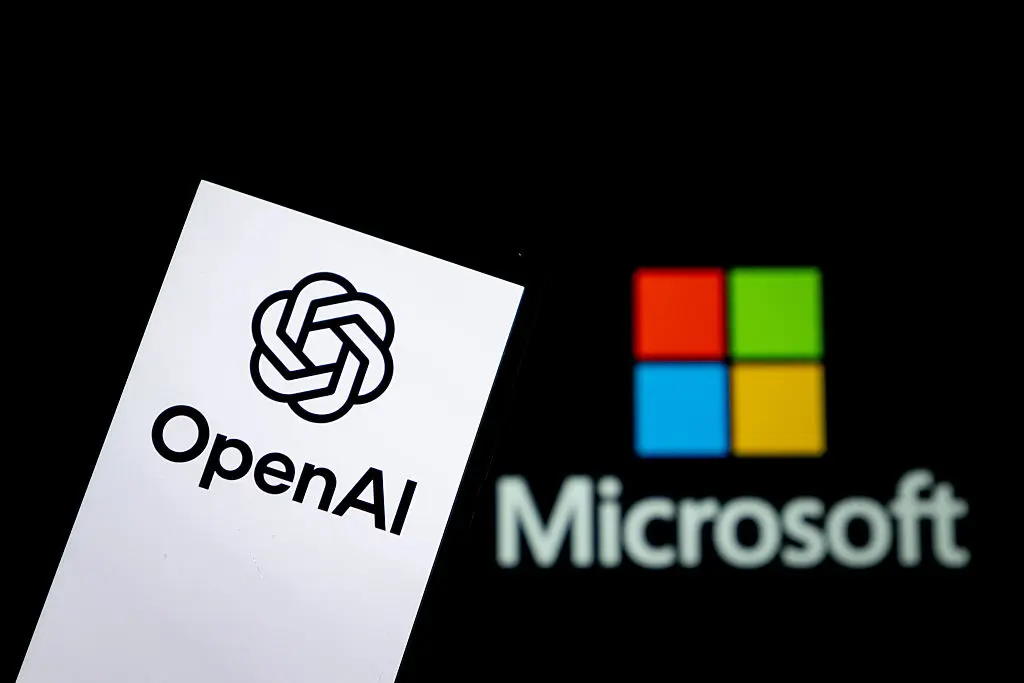lipflip – After months of intense negotiations, Microsoft and OpenAI have finalized a transformative deal that reshapes their partnership. This new agreement gives Microsoft deeper insights into OpenAI’s cutting-edge models while allowing OpenAI more independence in its future endeavors. As part of the agreement, Microsoft will maintain a stake in OpenAI. While OpenAI will commit to investing heavily in Microsoft’s Azure cloud platform.
Read More : Elon Musk Struggles with Leaving California Behind
Microsoft has already invested approximately $13 billion in OpenAI over the years. The new deal comes as OpenAI plans to develop an extensive network of AI data centers. A move that could require hundreds of billions in capital. This shift prompted the need for a renegotiated agreement to ensure both companies’ interests were aligned as OpenAI’s AI ambitions grow.
The agreement addresses a significant question: what happens when, or if. OpenAI creates an artificial general intelligence (AGI) — AI that matches or exceeds human intelligence? Under the terms, both companies can independently pursue the development of AGI. However, if one of them achieves AGI, their collaborative partnership will effectively dissolve. Microsoft retains some rights over post-AGI models, but the AGI itself will remain separate, ensuring OpenAI’s autonomy.
In a unique arrangement, Microsoft will allow OpenAI to develop AI products in partnership with third parties. However, any AI running on Microsoft’s Azure platform will require the use of the OpenAI API, further reinforcing the cloud giant’s involvement in OpenAI’s ecosystem.
Microsoft’s Strategic Gains and OpenAI’s Growing Autonomy
The deal marks a significant win for Microsoft. The company secures a continued 20% share of OpenAI’s revenue and a 27% equity stake, which is valued at around $130 billion. This not only strengthens Microsoft’s role as a leading player in AI but also provides substantial financial returns from OpenAI’s ongoing innovations.
Furthermore, OpenAI has committed to purchasing $250 billion worth of computing power from Microsoft’s Azure in the coming years. This long-term commitment underscores OpenAI’s increasing reliance on Microsoft’s cloud services.
Despite the advantages for Microsoft, OpenAI benefits from newfound freedom. The deal allows OpenAI to work with other cloud providers, giving it the flexibility to explore additional partnerships and revenue streams. While OpenAI does not appear to gain as much equity in this deal, it gains considerable independence to chart its own course as it continues to develop powerful AI systems.
Read More : Xbox Remakes Classic Halo Game, Now Available on PS5
CEO Sam Altman has used the deal to outline OpenAI’s bold future. One of the key promises is the eventual deployment of a gigawatt of AI compute power per week. Although this is a lofty goal, the cost of deploying such massive AI infrastructure could exceed $40 billion. OpenAI’s planned $500 billion IPO and new partnerships, like the recent deal with PayPal to integrate commerce into ChatGPT, may provide the resources needed to fund this ambitious vision.
The partnership signals the next phase in the AI race. As both companies continue to push the boundaries of AI research and development, the deal is poised to impact the broader tech landscape in the coming years.
